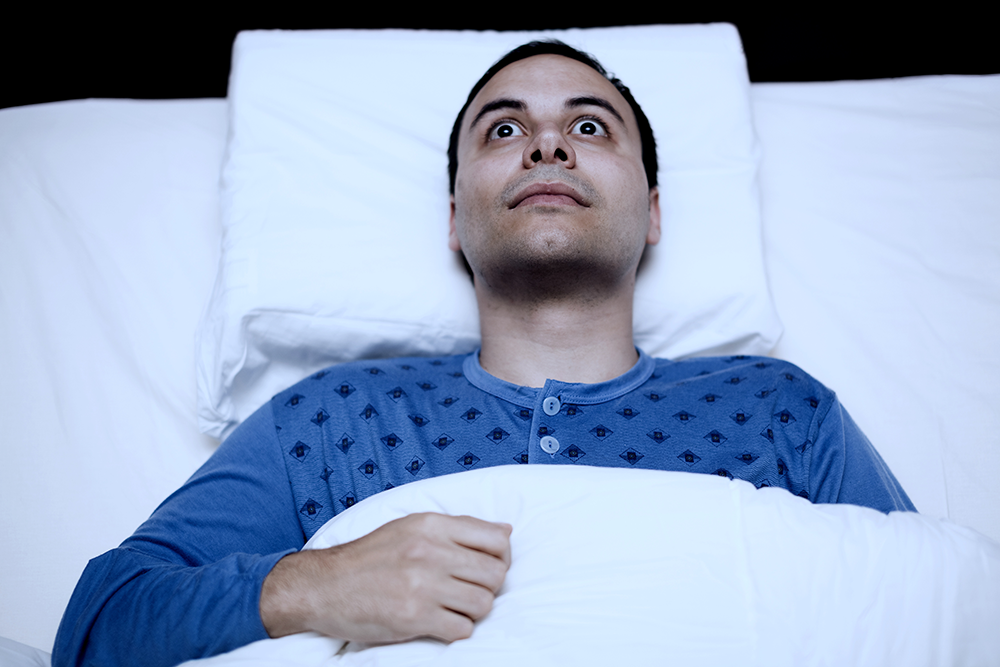Shopping for High Fiber Foods

Studies find those consuming a high-fiber diet to be at lower risk for heart disease.
Soluble fiber reduces total and LDL cholesterol levels and improves insulin resistance. Foods containing insoluble fiber are consistently associated with lower rates of cardiovascular disease.
How much dietary fiber?
There are two types of dietary fiber: soluble and insoluble.
Soluble fibers absorb water during digestion, increasing stool bulk and decreasing cholesterol levels.
Insoluble fibers are not impacted by digestion and promote normal movement of intestinal contents.
The Institute of Medicine recommends 25 grams per day for women and 38 grams per day for men if under the age of 50. For those over 50-years-old, the recommendation is 30 grams for men and 21 grams for women.
Too little dietary fiber?
A diet low in fiber increases risk for heart disease, diabetes, diverticular disease, and constipation.
Most American’s consume only 15 grams of dietary fiber daily.
Too much dietary fiber?
Risk of consuming too much fiber is minimal. The side effects of too much fiber are typically associated with increasing fiber intake too quickly. If you currently consume a diet low in fiber, you want to gradually add more fiber-rich foods to your diet. Increasing fiber intake too quickly can lead to:
- Abdominal pain
- Flatulence
- Bloating
- Diarrhea
- Intestinal blockage in those with Chron’s disease
- Reduced blood sugar (important to know if you have diabetes)
How to consume a high fiber diet every day
Pursuing Sustainable Heart Healthy Activities
Post contributed by Harriet Dunes.

The practical realities of becoming healthier are hard to describe. However, it’s very important that we do so. There are many guides that emphasize simple methods to help you improve your heart health, but not all layout a simple plan for you. We hope to change that with these simple steps to give you an idea of the importance of sustainable heart healthy activities.
We’d recommend the following:
Start Your Day With Exercise
Upon waking, it’s important to start your day with a form of exercise. This allows you to fully wake up and elevates your heart rate. A morning workout can help offset a day sitting in the office.
Being active in the morning gifts you the ability to reduce lethargy throughout the day. This means ensuring you walk after lunch, commit various stretches during the day and also refrain from negative foods to help you become much more healthy in the long run.
Permeate Your Days With Discipline
Discipline is important when scheduling our practical daily realities. Sober living can often work to our advantage here and give us the headspace necessary to commit to our diet. Think of how alcohol and other indulgences often lead to other vices as if via a snowballing effect. Putting this extra tax on your system could be considered the opposite of ideal in all scenarios. You need to understand the consequences of everything you eat and consider how certain choices impedes heart health. A poor choice in the short term can mean negative long-term consequences, so be sure to consider every vice with due care and caution.
A Matter Of Daily Priorities
How you fill your days is often dictated by the fundamental choices of life. We are only afforded one body, and in lieu of any organ transplants, it is up to us to take care of it. This means understanding our priorities can help us shift our overall habits. For example, consider a chef working fourteen hours a day in a high stress, intense environment. Is it enough for them to simply cope with the stress and bottle it all up, or does an internal sense of self-worth allow them to seek out healthier habits?
This might mean when aging, this chef decides to hire additional help and delegate more tasks to lower workload and stress levels. You must find a way to balance income with the need for better health. It could also involve moving to another climate or even understanding the emotional turbulence of toxic people and removing them from your life.
End Your Day With Meditation
Meditation is one of the most important things you can do for heart health. Meditation, a time to relax, helps you lower your resting heart rate and unwind from a stressful day in a healthy wayr. This lessens your cortisol levels long term and also helps regulate your stress response. End each day with thirty minutes of meditation and you’re sure to see the benefits quickly.
With all this in mind, sustainable daily heart health could be yours for the taking.
Are you at risk for adverse drug interactions?

According to Mayo Clinic and Olmsted Medical Center researchers, nearly 70% of Americans take at least one prescription medication. Out of this, 50% take two prescription medications and 20% take FIVE or more prescription medications.
According to the U.S. Food and Drug Administration, 100,000 American’s die annually from reactions to prescription drugs. Out of the 4.4 billion prescription medications dispensed in the U.S. each year, 50% are not taken correctly.
Studies indicate preventable medication errors harm 1.5 million Americans each year.
Many adverse drug interactions are connected to over-the-counter (OTC) medications. Many people never consider the potential risk of combining OTC medications with their prescription medications.
Some of the most widely used OTC medications include:
- Cough medicine/decongestants
- Antihistamines
- Pain and fever relievers
- Antacids and anti-gas products
According to pharmacist Robert Baker, these OTC medications pose potential for adverse drug interactions with many commonly prescribed cholesterol and blood pressure medications, such as statins and diuretics.
Ingredients and interactions to be aware of
Baker has shared a few interactions and ingredients to be aware of…
Sleep Deprivation and Heart Disease

A 2011 study by the American Heart Association found poor quality sleep to increase high blood pressure risk, which can then lead to heart disease.
I had the pleasure of collaborating with leading alternative health expert Bryce Wylde. Bryce Wylde is a highly knowledgeable and respected natural healthcare clinician whose specialty is homeopathy, clinical nutrition, supplementation, and botanical medicine and whose focus is routed within functional medicine.
In this three-part series, Bryce shares information ranging from the connection between sleep deprivation and heart disease to the diagnosis of sleep apnea and the impact of snoring, as well as steps you can take to ensure a quality nights sleep.
Sleep deprivation
Sleep is measured physiologically by electrical changes in the brain. Sleep is quantified in the amount of time spent in or out of REM (Rapid Eye Movement). The duration from the beginning of non-REM to the end of REM is an important aspect of your sleep pattern. This is referred to as sleep architecture. Sleep architecture varies widely across species, and is thought to be significantly influenced by genetics. But no matter your eye or hair color, or where you’re from, you’ve heard of the general importance of 7-8 hours for optimal health. There is a reason for that. For optimal sleep, it is necessary to experience full and uninterrupted sleep cycles. It takes the average person about 90 mins to get through one full sleep cycle. Sleep research has concluded that we need 4-6 cycles per night to feel our best. Do the simple math and we need 7-8 hours. But accomplishing optimal sleep isn’t as easy as clocking 8 hours on your pillow.
Science has previously shown that those of us who are regularly sleep deprived or have interrupted sleep – especially those of us who snore – are more likely to have high blood pressure, diabetes and narrowed blood vessels. Each of these can decrease blood flow inside the brain. Brain cells require ample oxygen and sugar. Without ideal blood flow to the brain this will affect its ability to work properly and recall information. To boot, during sleep you can strengthen memories and practice skills you learned while awake in a “virtual” environment.
Sleep deprivation, inflammation, and heart disease
The Effects of Snoring Go Beyond Heart Disease
 As we discussed previously, poor sleep impacts inflammation, hypertension, and attention deficit. In this third part of our three-part series on sleep and heart disease, we look closer at the effect of snoring on health with leading alternative health expert Bryce Wylde.
As we discussed previously, poor sleep impacts inflammation, hypertension, and attention deficit. In this third part of our three-part series on sleep and heart disease, we look closer at the effect of snoring on health with leading alternative health expert Bryce Wylde.
The effects of snoring on relationships
The effects of snoring goes well beyond inflammation, hypertension, and attention deficit. The U.S. National Sleep Foundation reports that 90 million Americans are affected by snoring (about 28% of the population). That’s a lot of zzzs! Further, a study by the National Sleep Foundation found that about 24% of couples sleep in separate rooms because of snoring, and many couples who sleep separately are reluctant to discuss it. This is causing a lot of strain on relationships – often even to the point of separation – even, ultimately, contributing to divorce!
In fact, the National Sleep Foundation found that more than a third of respondents admit that their partner’s disruptive sleep habits have affected the quality of their relationship. Two in five (17-23%) indicated that their intimate/sexual relationships had been affected because they were too sleepy. Another 51-62% agreed that not getting enough sleep impacts their relationships with family or friends.
It turns out one of the number one undiagnosed causes of sleep interruption is indeed snoring and subclinical apnea. This is a problem for both parties of a relationship. To complicate matters, it is a common attitude that “nothing could possibly be done about snoring”. This often stops couples from taking care of this issue so that it doesn’t end up causing so many repercussions.
Sleep deprivation and weight gain
Of course, I would be remiss if I didn’t discuss the impact of too little sleep on weight gain! If you’re wondering why your recent efforts at the gym and eating clean haven’t been working as well as you’d hoped, you should know that sleep and metabolism control are found in the same area of the brain. When you are sleep deprived, your hunger hormones go way up. If you are trying to lean up, you need to ensure you get 7-8 hours of deep restful sleep. When you don’t get enough sleep, you lose muscle mass, according to research conducted at the University of Chicago.
A study in the American Journal of Clinical Nutrition found that when people were starved of sleep, late-night snacking increased, and they were more likely to choose high-carb snacks. It turns out that if you’re sleepy, you crave the wrong foods and have a harder time saying “no”.
Here is another shocker: Driving Under Drowsiness (DUD) for just one night can be as detrimental to your driving ability as having an alcoholic drink (DUI)! Sleep deprivation causes impaired reaction time and decision making. According to The National Highway Traffic Safety Administration, being tired accounted for the highest number of fatal single-car crashes due to the driver’s performance. It turns out that is even more than alcohol!
All the best,
Lisa Nelson RD
Health Pro for HealthCentral
Part 1: Sleep Deprivation and Heart Disease
Part 3: How to Obtain a Quality Nights Sleep for Optimal Heart Health
How to Get a Good Nights Sleep for Optimal Heart Health
 Bryce Wylde, leading alternative health expert, has provided a wealth of information regarding the impact of sleep on health. If you’ve missed a part of this sleep series…
Bryce Wylde, leading alternative health expert, has provided a wealth of information regarding the impact of sleep on health. If you’ve missed a part of this sleep series…
Part 1: Sleep Deprivation and Heart Disease
Part 2: The Effects of Snoring Go Beyond Heart Disease
Now, let’s summarize the health risks of sleep deprivation and move on to steps you can take to reduce risks by ensuring a quality nights sleep.
Sleep deprivation and health risks
Chronic sleep deprivation due to causes such as snoring and sleep apnea increases your chances of diabetes, depression, cardiovascular disease, hypertension, weight gain and even a fatal car accident.
Poor sleep hygiene is likely one of the most common problems encountered in our society leading to sleep deprivation. As a society, we generally stay up too late and get up too early. We have over exposure to artificial light which impedes the hormones that regulate sleep. We interrupt our sleep with drugs and chemicals. We work too many hours sustained on too much caffeine. Not to mention, we fill our heads with negative news headlines just before we hit the hay.
How to get a good nights sleep
Here is how you can successfully achieve optimal sleep hygiene:
Bryce’s first tip! Don’t push snooze in the morning! Research shows that snoozing doesn’t benefit you. Getting too little – and even too much – seems to negatively affect memory according to the Harvard-based Nurses’ Health Study whose findings were published in the Journal of the American Geriatrics Society. So, try and sleep like Goldilocks and aim for just the right amount of sleep!
Use comfortable bedding that helps you regulate temperature. Research shows about 60-67 degrees Fahrenheit is optimal.
Set your alarm twice in 24 hours. The first alarm should go off at your bed time! This will alert you to the time you need to hit the sack to achieve the necessary 7-8 hours.
Don’t take your worries to bed. Create a written list and leave it in the kitchen. Practice relaxation techniques before bed such as deep breathing and visualization. Tell yourself the list is done and you will get to it in the morning.
Drown distracting noise, and eliminate as much light as possible. Consider an eye mask. But, if you or your partner snores or has congestion, my favorite product on the market right now is appropriately and ingeniously called “Mute” by Rhinomed. Both snorers and their partners report a better night’s sleep when Mute is used, waking more refreshed. In fact, in a user trial, 75%* of partners reported snoring was either less or much less when the snorer used Mute. And let’s not forget how this issue isn’t just about the snorer but also about the partner who loses sleep while enduring the agonizing noise of the snorer! The reason I love Mute so much is that it is individually adjustable on each nostril so it fits all nose types. This enables the device to comfortably adjust to asymmetrical noses or noses with deviated septums. I have a nasal septal defect (one nostril is distinctly smaller than the other which causes me to snore). When you first put in Mute, you get an instant rush of air; you can really feel the difference. It is super easy to find by the way – available at Walgreens, Bartell Drug, CVS, Duane Reade and even online at mutesnoring.com.
Avoid napping more than 15 minutes. Do what truckers do and set your alarm for 10 to 15 minutes! Longer than that and you run the risk of entering a sleep cycle (above) thereby robbing one of the sleep cycles from happening at night. Don’t forget, you can’t “catch up” on your sleep.
Avoid alcohol and caffeine 4-6 hours before bedtime. Caffeine avoidance is obvious. But where alcohol may have immediate sleep-inducing effects, a few hours later as the alcohol levels fall and interrupt your sleep cycle by interfering with your sleep architecture.
Exercise intensely and regularly, but not right before bed! Aim for the morning time to exercise. If you exercise too soon before bed you run the risk of increasing body temperature which makes it more difficult to fall asleep.
Warm milk and foods high in the amino acid tryptophan, such as bananas and pumpkin seeds, may help you to sleep. A formula commercially available and researched for its safety and efficacy in keeping you asleep is called “Zen Bev” a formula created using pumpkin seeds yielding a high amount of naturally occurring tryptophan.
Watching TV or engaging in social media in bed is also a bad idea. Besides some of the controversial evidence about its light emission, these are very engaging mediums that tend to keep you up by keeping your mind overly active.
Your goal is not to sleep like a baby! They do tend to sleep long hours (more than you will need) but are also restless and wake up multiple times through the night. You want to sleep like a log: Quiet and waking up in nearly the same position you fell asleep in. Use Bryce Wylde’s tips above and you’ll get there!
Drs. Chris and Kara Mohr developed the 21 Days to Better Sleep program. I highly recommend it. Their videos with instructions are engaging and the content can be put to good use so you achieve quality sleep each night. Learn more and purchase the program here.
All the best,
Lisa Nelson RD
*results may vary (n=236, 2014); Based on 2014 Mute user study with 118 couples.



